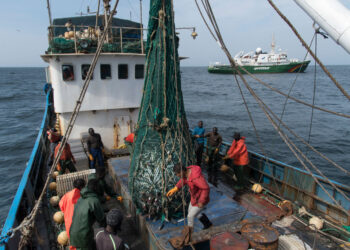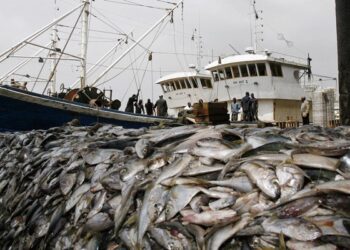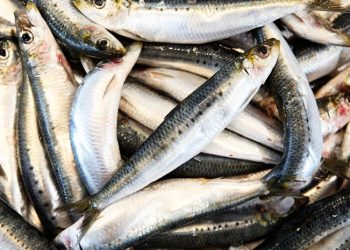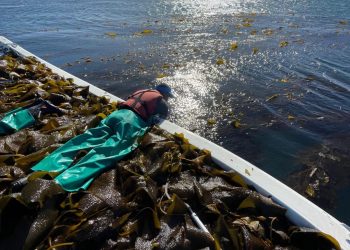
The Ministry of Labour, Industrial Relations and Employment Creation says it is establishing the National Coordination Mechanism to address poor working conditions in the fishing industry.
The National Coordination Mechanism is a body that will address the decent work challenges and opportunities in the fishing supply chain.
A 17-member board will further address issues such as occupational health and safety, forced labour, as well as violence and harassment on some vessels using Namibian ports.
Minister of Labour, Industrial Relations and Employment Creation Utoni Nujoma said despite the fisheries sector playing a crucial role in Namibia’s economy, providing employment and uplifting the livelihood for many of our citizens, is marred by several challenges.
“The status of employment relations in the fishing sector remains unabated. It is for this reason that the government has once again shown its commitment to addressing key issues that affect the operations in the fishing sector, hence the constitution of the National Coordination Mechanism and the business forum that is aimed at creating awareness, discuss issues that pave ways for improvement, promotion and bring about opportunities in the Namibian fisheries supply chain,” said Nujoma.
In addition, he said the forum will also present an opportunity for Namibian businesses to explore the existing local and international markets and enhance business sustainability and diversification.
Nujoma stressed that decent work is not just a moral imperative, rather it is essential for sustainable development.
“When workers are treated fairly, paid a decent wage, and provided with safe working conditions and environment, they are more productive, profitable and contribute more effectively to economic growth. It is therefore of utmost importance to take cognisance that adequate and appropriate measures to promote good basic conditions of employment, prevent accidents and diseases at work are of paramount importance,” he said.
“Hence, it is disheartening to note that these measures are often not available, especially in some organizations where employee welfare, safety and health are ignored and not prioritised.
“In an effort to foster and ensure that we deliver in one of our main mandates of ensuring harmonious labour relations key milestones have been achieved, through the Ministry of Labour in addition to our national labour legislations ratified by the International Labour Organisation (ILO) legal instruments that are pivotal to our fisheries sector’s operations. Among them is the Convention on Work in the Fishing, No. 188, Convention on Elimination of Violence and Harassment in the World of Work, No.190 to mention,” added Nujoma.
He said other milestones include the finalisation and gazetting of the second variation in the fishing sector, whereby certain conditions of service/employment have been varied in certain provisions of Chapter 3 of the Labour Act, 2007 (Act No. 11 of 2007) for the fishing sector.
The variation Nujoma said does not intend to disadvantage workers or employers but rather aims to promote decent work in the Fishing Sector and promote its sustainability.
“In the same vein, ILO in cooperation with the European Union through the Sustainable Supply Chains to Build Better (SSCBFB) project assisted Namibia in addressing decent work challenges and opportunities in the fisheries supply chain in Namibia. Together we constituted the National Tripartite Advisory Committee members to spearhead and facilitate the implementation of the SSCBFB project,” he said.










